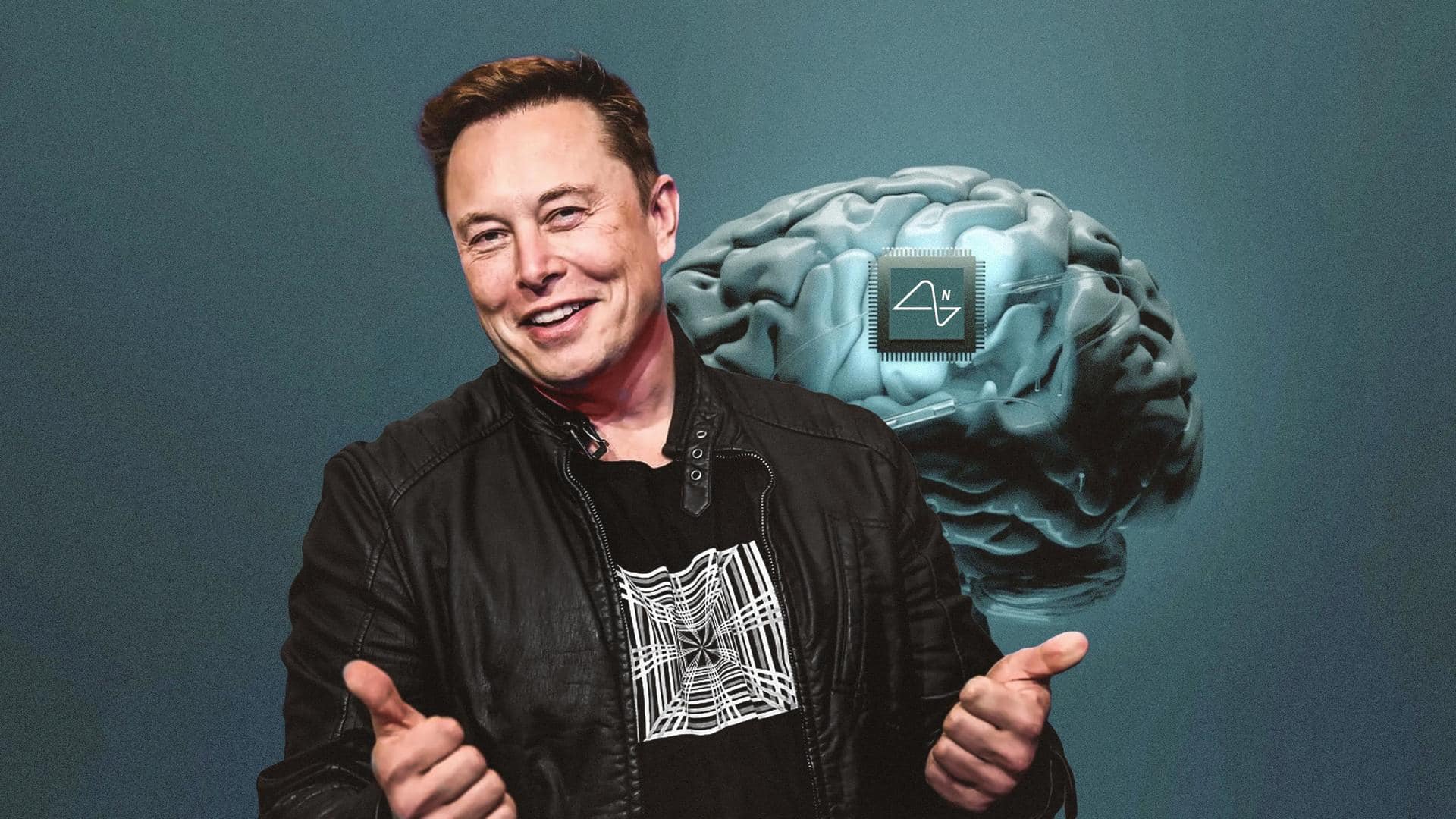
Elon Musk's Neuralink can now test brain implants in humans
What's the story
Neuralink, the brain-machine interface (BCI) start-up co-founded by Elon Musk, has achieved a significant step in its quest to set up direct communication between brains and computers.
The company announced it received the nod from the US Food and Drug Administration (FDA) to conduct its first in-human clinical study.
The neurotech firm had previously faced challenges in obtaining regulatory clearance for human trials.
Context
Why does this story matter?
Neuralink is one of the many companies working on BCI. It is also the most famous company in this sector, thanks to Musk's popularity.
No BCI company has obtained FDA's final approval yet. However, the green light to conduct human trials is a step in the right direction for the start-up.
BCI has the potential to revolutionize the medical field.
Approval
Patient recruitment has not opened yet
Neuralink shared its excitement about the FDA approval via a tweet.
"This is the result of incredible work by the Neuralink team in close collaboration with the FDA and represents an important first step that will one day allow our technology to help many people," the company said.
The firm is yet to start patient recruitment for its clinical trial.
Brain implant
Neuralink's brain implant can help people control machines
Neuralink is working on a brain implant called Link, which can help people control external technologies with just neural signals.
The chip is expected to help people with severe paralysis control a smartphone or a computer with thoughts.
So far, the company has tested this technology on animals. Now, it will have a chance to see how it works with the human brain.
Win
Neuralink has faced multiple hurdles recently
The FDA approval is a big win for Neuralink, which has been dealing with multiple issues recently. In 2022, the US Department of Transportation opened an investigation against the company for allegedly packaging and transporting dangerous pathogens.
The start-up has also come under fire for potential animal welfare violations. Activists have called on Neuralink to release details about how it treats animals.
Concerns
FDA had raised concerns about Neuralink's device previously
The FDA itself has raised concerns about Neuralink's brain implant. Previously, the regulator had rejected the company's application for human trials.
The issues pointed out by the FDA were about the lithium battery of the implant, safe extraction of the device from the brain, and potential migration of wires within the brain.
It is unclear how Neuralink addressed these concerns.